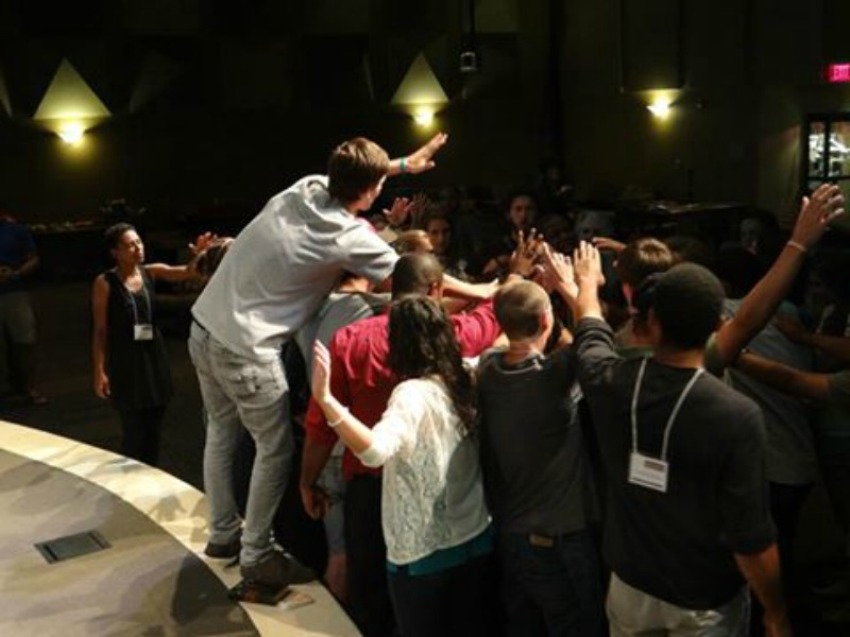Can the Chasm Between Charismatics and Cessationists Be Bridged? Scholars, Pastors Weigh In

Of all the theological squabbles that have plagued evangelical Christianity over the years, especially in the West, a particularly profound division centers on the power of the Holy Spirit and the ways in which He is at work today.
Charismatics and noncharismatics who spoke with The Christian Post all concurred that steps can be taken toward mending this division, even as differences remain.
Those who believe that the supernatural gifts of the Holy Spirit — such as prophecy, tongues, interpretation of tongues, the working of miracles, and the others listed in 1 Corinthians 12 and 14 — have continued to this day, called continuationism, are often associated with Pentecostalism or the "charismatic movement," as it is often called.
Some say that at long last, Pentecostals and charismatics are finally maturing theologically, after many years of being regarded as Bible-lite emotionalists, and that the growing presence of the supernatural in Christian churches is part of a great, worldwide move of God's Spirit that is in keeping with the witness of Scripture.
Other believers are just beginning to explore the supernatural more deliberately, admitting that while they believe in the continuation of the gifts of the Holy Spirit they don't actively use them. Yet others continue to think such gifts were only intended for a specific time in biblical history and are no longer operational, a view known as cessationism.
Grappling With the 'Sufficiency of Scripture'
For the perspective of one such cessationist, CP reached out to Eric Bargerhuff, a professor of theology at Trinity College in Florida and author of the book, The Most Misused Stories in The Bible: Surprising Ways Popular Bible Stories Are Misunderstood.

Despite the deep divide in the Body of Christ over this topic, Bargerhuff said he believes some progress can be made when asked how continuationists and cessationists might get over their differences, particularly when their beliefs have significant implications for what ministry looks like.
Finding a mutually understood language is critical, he says.
"Often times the debate is fueled by people who are talking past each other by using common terminology with differing definitions," explains Bargerhuff, a Reformed Baptist who studied under Reformed theologian Wayne Grudem, a continuationist.
"Similarly, others may be saying the same thing but are using different phrases. For example, one may say 'supernatural gifts of knowledge,' whereas someone else may use the idea of 'the gift of discernment,' though they are intending to say the same thing."
Bargerhuff further stressed that the conversation can be assisted by each side discussing what they mean by "sufficiency of Scripture," and the role that experience has in the entire debate. He said he's often heard people say they used to believe something about God's Word until they had a particular experience and then read that experience back into the Scriptures to justify its validity.
"The role of experience must be clearly defined and put in its proper place. Scripture interprets experience, not the other way around," he said.
Bargerhuff added that extremes on either side are unhealthy, such as when continuationists present themselves as "more spiritual" or at the very least "a higher class of Christian" than those who have not experienced the same things they claim to have experienced; or by contrast, when cessationists minimize the "affectionate side of Christianity" and make it "into an academic, cold, intellectual exercise."
"Therefore, mutual humility, an agreed upon vocabulary, a commitment to the centrality of the Gospel and first order doctrines, a willingness to test our convictions and experiences through the sound exegetical practices, and a deep commitment to unity are key components of working together," he said.
"It is very possible that our differences may continue to keep some Christians from working intimately together on some ministry projects, but the overall ability to agree together on the essentials of the faith must be a stronger chord that keeps us together on mission."
When Pentecostals, Charismatics Fail
Michael Brown, a messianic Jewish scholar, charismatic theologian and host of the Line of Fire radio program, told CP that "the charismatic movement has done a poor job of policing itself. There's really no question about that."
"And so our critics have had a field day."

But those critics have thrown the proverbial baby out with the bathwater, he insists, noting that whenever God restores something important to the Church, such as the doctrine of justification in Martin Luther's day — which was not a new revelation but a truth that had been buried and lost under many layers of tradition — such recoveries are never smooth transitions.
Brown is also the author of the upcoming book, Playing with Holy Fire: A Wake-Up Call to the Pentecostal-Charismatic Church. In it he chastises Pentecostal and charismatic churches for their spiritual gullibility, sexual sin in leadership, misuse of finances, doctrinal error, personal flakiness, and misuse of "prophetic" utterances, even as he maintains that the gifts of the Holy Spirit are for today.
"If you look through Church history in the centuries before that there was still prophecy, there were still healings, there were people being delivered from demons. So this whole idea that it all stopped at a certain point, be it the death of the Apostles or the completion of the canon [of Scripture], is a complete historical fiction," Brown said, referencing Asbury scholar Craig Keener's two-volume work, Miracles: The Credibility of the New Testament Accounts, in which Keener highlights how rationalist philosophy influenced subsequent generations of Christians regarding the supernatural.
He explained that Augustine once believed that the death of the last Apostle meant the end of miracles but ultimately came to reject that view.
"It is true that with Augustine that the gifts of the Spirit were normative in New Testament times and then in less than a two-year period they recorded more than 70 miraculous healings and he said there were miracles just like they saw in the New Testament. So in City of God, his definitive work, he absolutely reiterates those things," Brown said.
"As God continues to do what He has always done but in greater intensity and in measure in these days then we're recognizing that, OK, the Spirit continues to do these things based on Scripture. And to me, that's always the test: 1) look at the Word, 2) go from the Word to the experience and then look at history, but always first and foremost look at the Word," Brown said.
He went on to stress that what is key is that followers of Jesus believe in "Father, Son, and Holy Spirit, not Father, Son, and Holy Bible."
"And when we speak of the sufficiency of Scripture we don't mean that we have a relationship with the Bible. We mean that God's Word is His one and only Word — that there is only one Bible and that nothing else can be called Scripture or claim to be the Word of God for all people."
Yet that Word does not tell us every experience we will or will not have, or how you meet with God in personal prayer, Brown said.
"What if you feel your heart burning?" he asked, referencing Cleopas and the words said on the road of Emmaus in Luke 24.
The questions that should be asked when engaging spiritual experiences, Brown insists, are, 'Is it God or not?' Is it contrary to Scripture? Is it in harmony with the larger testimony of Scripture? What kind of fruit does it bear?"
"So we use the creedal test and the moral test — what does it teach and what kind of fruit does it produce — and based on that we come to our respective conclusions," he explained.



























